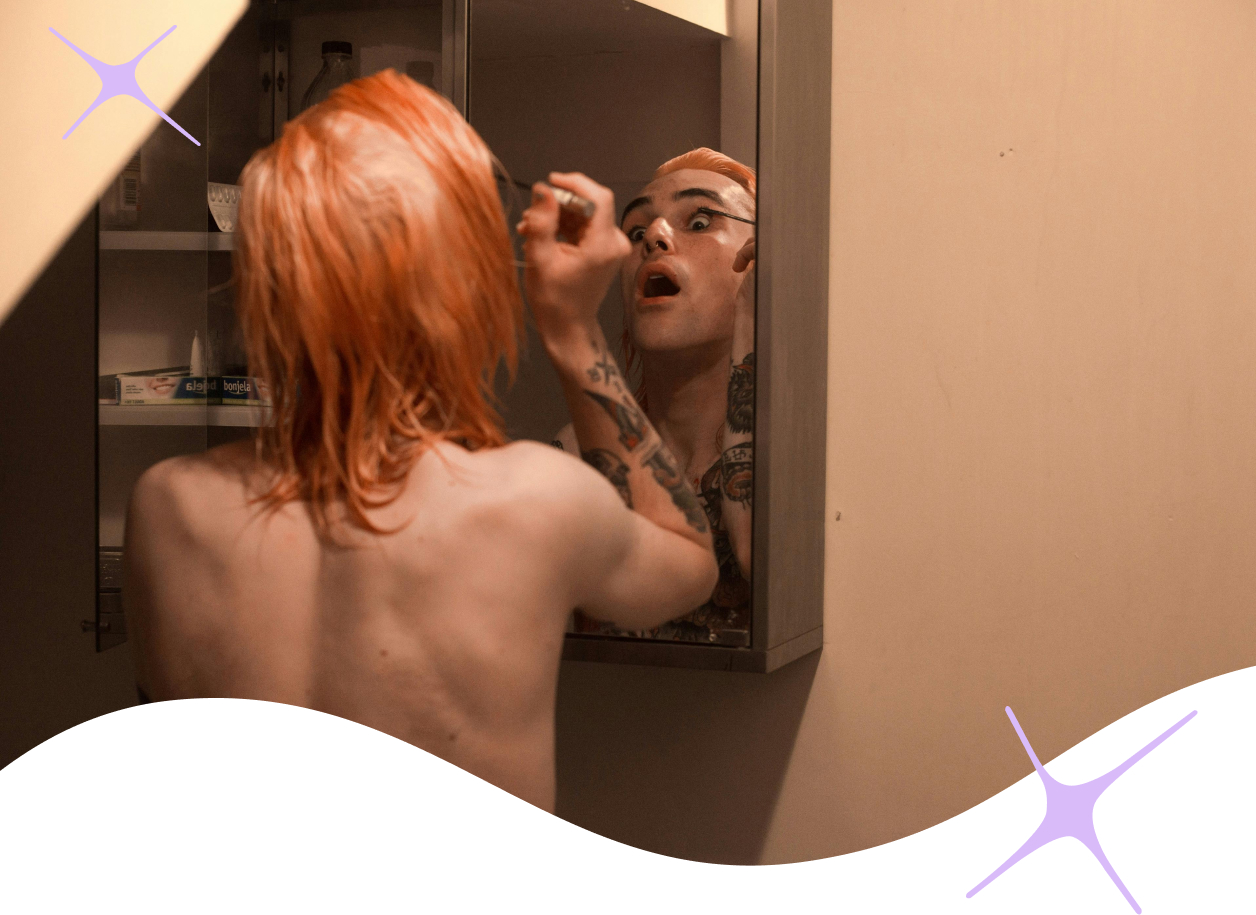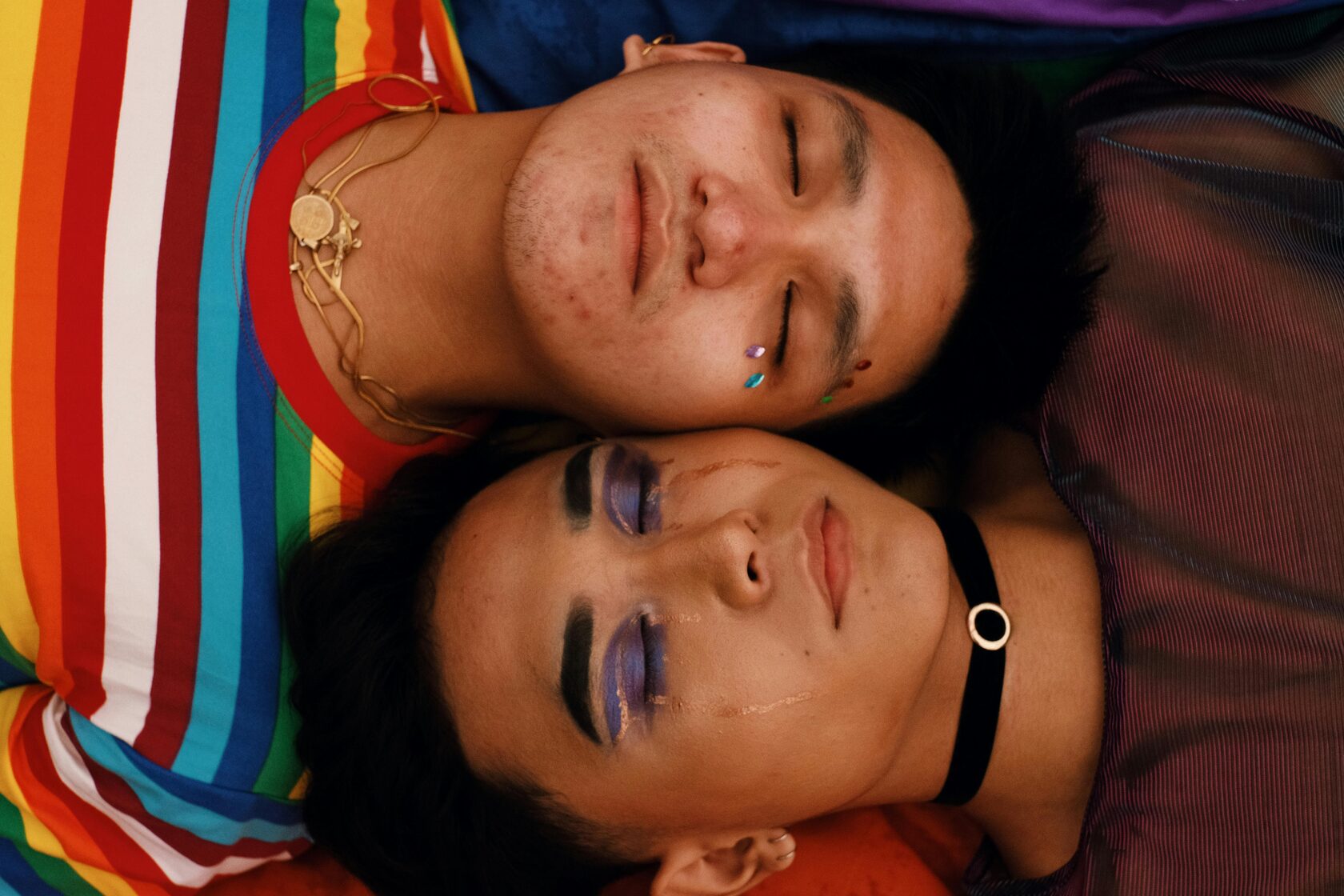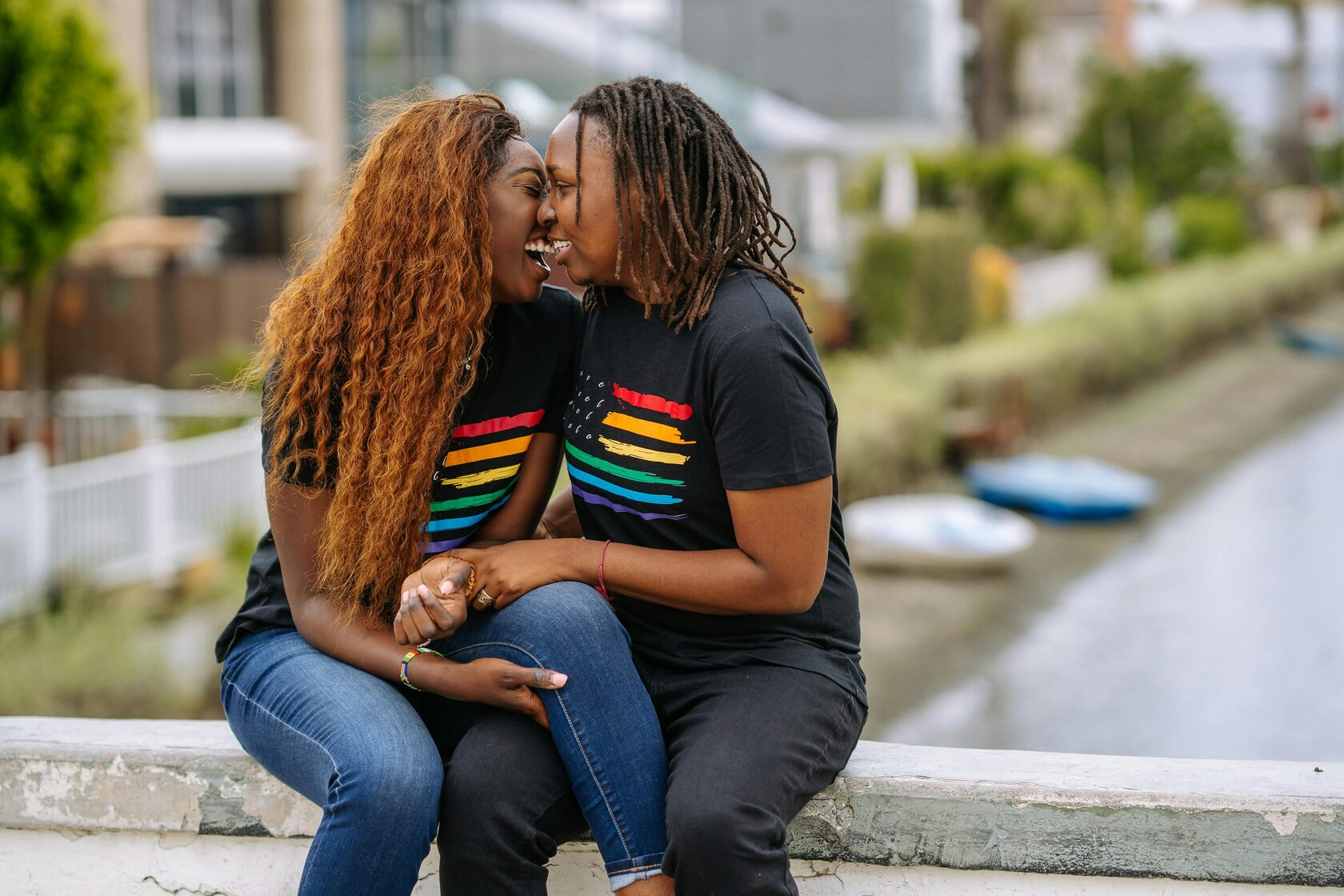Sexualities come in different shapes and forms. Today at Flure will be talking about the concept of genderqueer – learn the meaning of the term, understand what it feels like to be genderqueer, and compare it against other sexualities. Buckle up!

What is genderqueer?
If the word genderqueer has you confused, no worries! It is an umbrella term, and it represents a number of things. Anything outside the traditional binary (male and female genders and heterosexuality) can be considered genderqueer.
Even though the term was first introduced in the 1980s, it continues to evolve, so you might come across slightly different definitions, but the main idea is usually the same – genderqueer covers sexual orientations and identities that are not “traditional”.
So, for example, a person born in a woman’s body may feel weird and as if they’re living someone else’s life, and identify themselves with a male gender or non-binary people. Basically, gender queerness is about having a non-cisgender identity and/or having sexual orientations that are non-hetero, such as being bi or bi-curious or being in polyamorous relationships.
Note: While the word “queer” is widely used nowadays, it had a negative connotation not too long ago, and was used as an insult and a slur. The LGBTQ+ community is regaining control of the word and what it symbolizes, but it is still sometimes used as a degrading term. It’s best to be careful when using it, and maybe even double-check with people around you that they’re not offended by it.
How to know you’re genderqueer

If you suspect that you might be genderqueer, there are factors and signs to consider that can confirm it.
It’s not science though, so don’t rely solely on the points we share below, but also do your own research, read and watch commentary by other genderqueer people, talk to them if you know someone, or ask to be introduced. If you’re seeing a therapist, share your thoughts with them too. A therapist will not be able to tell you who you are, but they’re well-equipped to guide you in the right direction.
So, here are the signs that the Flure team collected from other genderqueer people and by talking to different experts:
- You feel uncomfortable and dissatisfied with the idea of traditional gender norms and what they represent.
- Your self-expression in mannerisms, clothes, hairstyles, makeup, etc, doesn’t align with the traditional gender norms and societal expectations.
- Your perception of your gender is not stable in the sense that you feel differently about who you are at different points in your life.
- The way you act, talk, and express yourself changes when you enter LGBTQ+ “safe spaces”.
- You are actively looking for gender affirmation from others.
- You are curious about alternative genders, sexual orientations, and identities, and you're consuming a lot of content or talking about it often.
What does it mean to be genderqueer
Let’s preface the list below by saying that being genderqueer can mean anything or at least a lot of things. So if your experience is different, that’s okay! However, many genderqueer people relate to:
- Feeling that they don’t fit into categories of male or female
- Experience gender fluidity at least at some point
- Disagree with traditional gender norms
- Actively explore non-conforming genders
Genderqueer vs genderfluid
Genderfluid people have their gender identity shifting and changing with time. They might view themselves as non-binary for some time, and then realize that they align with something else, even the traditional male and female genders. Not every genderfluid person’s identity is constantly going back and forth, but it’s pretty normal for them to have a dynamic gender experience and align with certain genders with more intensity and frequency.
As for genderqueer individuals, they may experience fluidity too, especially if they’re only starting the journey of realizing who they are. However, it’s more typical for a genderqueer person to figure out their identity and stick to it for good.
Genderqueer vs non-binary
Genderqueer and non-binary may seem similar but they have their differences.
By the way, non-binary people sometimes refer to themselves as enby, as in letters N and B, so if you hear it somewhere, know that it’s non-binary.
Both these terms apply to people whose identities lie outside of the traditional binary system, but the term non-binary is more restrictive, in some sense. Non-binary individuals’ identities do not fit into male or female categories, and that’s what the term signifies.
Genderqueer is a bit more broad than that. Yes, it also defies traditional binary concepts of gender, but that’s not the only thing they’re focused on. Genderqueer folks question traditional genders, sexuality, and identity.
To sum up, both terms overlap and can co-exist, but genderqueer touches on more subjects than the term non-binary stands for.
Agender vs genderqueer
Agender people do not have a gender identity. They identify as having no gender at all or not having a concept of gender. Like, they don’t know what it means to have a gender and have it be the centerpiece of your identity. Also, agender individuals typically don’t have an issue with that. They’re neutral to the whole idea of gender, and it doesn’t bother them.
Genderqueer people, in turn, are very aware of genders, and while they might not know what gender they truly align with, or their gender is shifting and being fluid, they’re usually looking to find the gender that would fit them and align with who they truly are.
How to support genderqueer people around you

Sadly, people who do not conform to traditional societal norms often face discrimination and bias, so they need our help and support. Also, a genderqueer person can struggle with their identity as they’re figuring out who they are, so it’s great if you can be patient and there to listen to them and help relieve their struggles.
Here is what you can do:
- Start the conversation with an open mind. There are many misconceptions about what it means to be genderqueer and what it entails. Listening to the person describing it to you without judgment is a great start.
- Ask how the person would prefer to be addressed. There are different pronouns that can be used, so make sure to check. Also, pay attention to what they say, so that you won’t instantly forget the pronoun and have to ask again. Trust us, we’ve been there, and it’s kinda embarrassing.
- Respect people’s privacy. When a woman is pregnant, many feel like it gives them a license to touch her stomach, which is obviously not the case and is highly invasive. It’s the same with genderqueer individuals – just because they’re falling outside of the norm and you’re curious, doesn’t mean you can ask all sorts of things about their sexuality, sex life, etc. It is fine sometimes, but you need to read the room to know when it’s okay and when it’s not.
- Say Sorry if you’ve made a mistake. The topics of gender identity and queerness are complex and tricky. You’re bound to misunderstand something or say the wrong thing if you’re dividing deep into the subject for the first time. A simple apology can do wonders, especially if you don’t have malicious intentions in mind.
Note: You don’t have to understand it or agree with it 100% to be an ally. The social climate in the US is not the best now; many different groups are set against each other, and we are led to believe that there is no gray area. You’re either fully accepting, or you’re an enemy. It’s not always true though. We all have our differences, beliefs, and values, but we can still work with each other and be supportive. In fact, that’s the basis of a healthy society. So even if you personally don’t comprehend the idea of gender queerness, you can be just as helpful to the cause. Showing that you’re seeing and hearing from the other person is saying, and having an open conversation is a huge step in the right direction. You don’t have to agree at the end of it, but you can learn to be partners, friends, lovers, or acquaintances who have each other’s backs.
Flure isn’t just a dating app—it’s your gateway to meaningful connections and unforgettable experiences. Whether you’re seeking new friendships, someone special, or just exploring, Flure makes it easy to find your kind of people. Built on trust, safety, and authenticity, Flure turns your online dating into something truly magical. Ready to make connections that matter? Join Flure today and see where it takes you!








